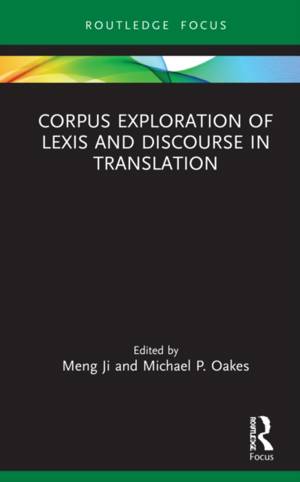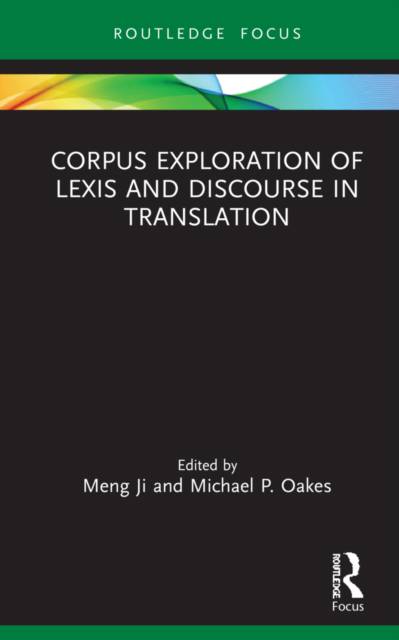
- Afhalen na 1 uur in een winkel met voorraad
- Gratis thuislevering in België vanaf € 30
- Ruim aanbod met 7 miljoen producten
- Afhalen na 1 uur in een winkel met voorraad
- Gratis thuislevering in België vanaf € 30
- Ruim aanbod met 7 miljoen producten
Corpus Exploration of Lexis and Discourse in Translation
Omschrijving
This edited volume reflects on the development of corpus translation studies as a rapidly growing, diversified field of translation studies. It examines the evolving identity of corpus translation from a marginal research tactic focusing on generating numeric corpus attributes to a powerful and increasingly sophisticated corpus analytical scheme and methodological paradigm that has significantly changed and continues to shape our understanding of the research and practical, social values of empirical translation studies.
Since its inception in the 1990s, corpus translation studies have permeated through almost every corner and branch of contemporary translation studies - from literary translation stylistics, through cognitive and neural translation, to more socially oriented translation studies, such as health care, environmental, and political and policy translation. Corpus methodological innovation has become a central research aim and priority in some of the most dynamic areas of translation studies. Methodological advancement has as its main aim a better, enhanced understanding on the part of translation studies scholars of the internal factors and external variables that may account for the prevalence of certain translation features (for example, corpus textual and linguistic patterns).
This edited collection presents the latest studies of corpus-based and corpus-driven specialised translation and will appeal to students and scholars of translation studies, in particular those interested in corpus translation.
Specificaties
Betrokkenen
- Uitgeverij:
Inhoud
- Aantal bladzijden:
- 128
- Taal:
- Engels
- Reeks:
Eigenschappen
- Productcode (EAN):
- 9780367609610
- Verschijningsdatum:
- 30/11/2021
- Uitvoering:
- Hardcover
- Formaat:
- Genaaid
- Afmetingen:
- 140 mm x 216 mm
- Gewicht:
- 312 g

Alleen bij Standaard Boekhandel
Beoordelingen
We publiceren alleen reviews die voldoen aan de voorwaarden voor reviews. Bekijk onze voorwaarden voor reviews.










